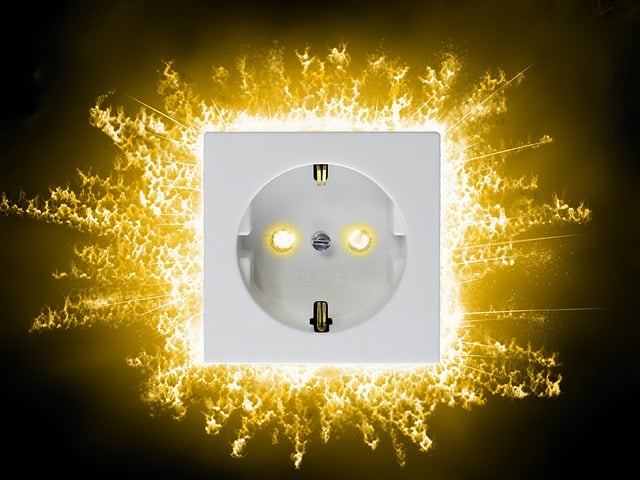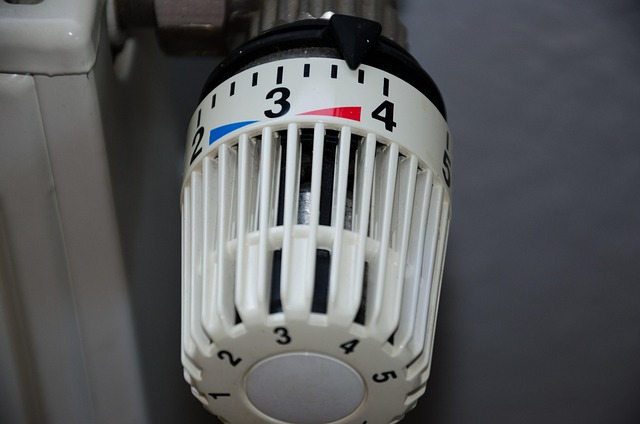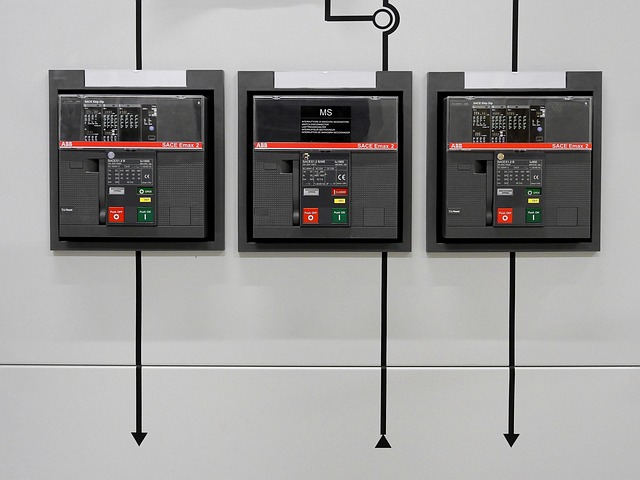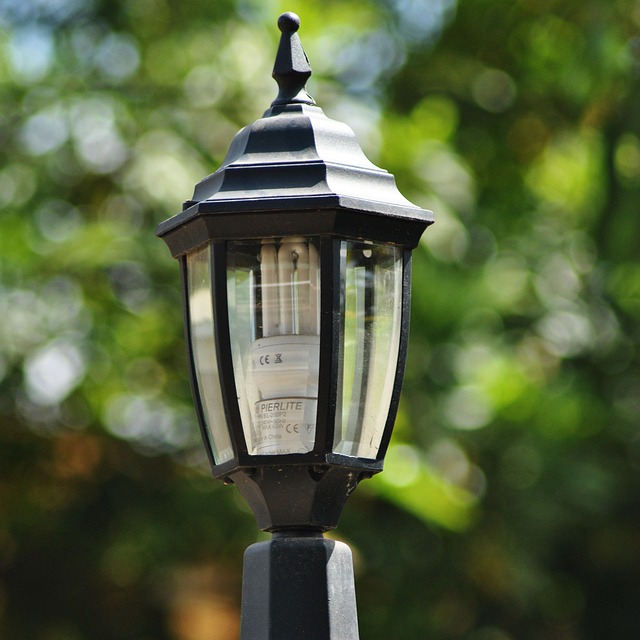Category: Commercial Electrical Services Eugene Oregon
Commercial Electrical Services Eugene Oregon: A Comprehensive Overview
Introduction
Welcome to an in-depth exploration of the vital sector that powers Oregon’s commercial landscape—Commercial Electrical Services Eugene Oregon. This article aims to illuminate the intricate world of electrical services tailored for businesses, industries, and institutions in and around Eugene, Oregon. By delving into various facets, we will uncover the significance of this industry, its global connections, economic impacts, technological innovations, regulatory frameworks, and future trajectories. Through case studies and expert insights, we will demonstrate why understanding and supporting Commercial Electrical Services is essential for the thriving commercial ecosystem of Eugene.
Understanding Commercial Electrical Services Eugene Oregon: A Foundation
Definition: Commercial Electrical Services refer to a comprehensive range of electrical design, installation, maintenance, and repair solutions specifically catering to the unique needs of commercial establishments. These services extend beyond residential settings, addressing the complex demands of businesses, including office buildings, retail spaces, manufacturing facilities, hospitals, schools, and more.
Core Components:
-
Design and Planning: This stage involves creating electrical blueprints and layouts tailored to a client’s specific requirements. It encompasses power distribution, lighting design, fire safety systems, and compliance with local building codes.
-
Installation: Skilled electricians install electrical infrastructure, wiring, outlets, switches, and specialized equipment. They ensure safe and efficient power supply while adhering to industry standards.
-
Maintenance and Repairs: Regular maintenance checks and prompt repairs are crucial for preventing electrical failures. Services include troubleshooting, component replacement, and upgrading aging systems to enhance safety and performance.
-
Specialized Services: Commercial electrical contractors often offer advanced services like energy-efficient retrofits, smart building integrations, renewable energy system installations (solar panels, wind turbines), and data center infrastructure support.
Historical Context: The evolution of Commercial Electrical Services has been a journey of technological advancement and changing business needs. From the early days of incandescent lighting and basic wiring to the modern era of smart grids and digital connectivity, the industry has adapted and expanded. In Eugene, Oregon, as in many cities across the US, the post-World War II economic boom led to a construction rush, driving the demand for skilled electricians to meet the growing commercial real estate needs.
Global Impact and Trends: A Connected World
International Influence: Commercial Electrical Services Eugene Oregon is not an isolated phenomenon; it is deeply intertwined with global trends and standards. International trade, investment, and technological exchanges have made electrical systems more interconnected, allowing for best practices to be shared worldwide. For instance, the adoption of smart grid technologies in Oregon has been influenced by successful implementations in Europe and Asia.
Key Global Trends:
-
Renewable Energy Integration: The global shift towards sustainable energy sources is driving demand for commercial solar installations, wind power systems, and innovative energy storage solutions.
-
Smart Buildings and IoT: The Internet of Things (IoT) is revolutionizing commercial spaces with smart lighting, temperature control, security systems, and energy management. This trend is expected to grow, creating new opportunities for electrical contractors.
-
Digitalization of Infrastructure: Digital technologies are enhancing power grids, enabling advanced monitoring, improved efficiency, and better grid stability.
Regional Disparities and Opportunities: While global trends provide a framework, regional variations in climate, economic development, and regulatory environments shape the specific challenges and opportunities for Commercial Electrical Services in Oregon compared to other states or countries. For instance, colder climates may drive higher demand for efficient heating systems and snow-melting technologies.
Economic Considerations: Powering Business Growth
Market Dynamics: The commercial electrical services market in Eugene, Oregon, is competitive yet dynamic. Local businesses range from small electrical contracting firms to large, established companies capable of handling complex projects. According to industry reports, the Oregon construction sector has shown steady growth, particularly in commercial and industrial development, contributing to increased demand for specialized electrical services.
Investment Patterns: Investments in commercial real estate and infrastructure projects drive the need for electrical upgrades and retrofits. Government initiatives, such as grants and incentives for energy-efficient buildings, also stimulate market activity. Additionally, private sector investments in data centers, technology hubs, and research facilities create niche opportunities for advanced electrical contracting services.
Economic Impact:
-
Job Creation: Commercial Electrical Services directly contribute to local employment, offering skilled trades jobs with competitive wages. According to the Oregon Employment Department, the demand for electricians in the state is projected to grow faster than average, indicating robust job prospects.
-
Induced Economic Activity: The industry supports a network of suppliers, manufacturers, and associated businesses, fostering economic growth within the region.
-
Tax Revenue: Commercial electrical contracting firms contribute to local and state tax revenues through business taxes and employment-related levies.
Technological Advancements: Driving Innovation
Smart Grids and Distributed Energy Resources (DERs): Smart grids represent a significant technological leap, enabling real-time monitoring and control of power flows. In Oregon, smart meter rollouts are enhancing energy efficiency and allowing for better integration of renewable energy sources. Commercial electrical contractors play a vital role in installing and maintaining these advanced systems.
Energy Storage and Microgrids: The development of affordable and efficient energy storage solutions, such as lithium-ion batteries, is enabling microgrid applications. These localized power systems can provide backup power and enhance grid resilience, especially in remote or disaster-prone areas.
Digitalization Tools:
-
Building Management Systems (BMS): BMS software allows for centralized control and monitoring of various building systems, including lighting, HVAC, security, and energy consumption. This technology improves efficiency and reduces operational costs.
-
Remote Monitoring and Control: Advanced sensors and internet connectivity enable remote monitoring of electrical systems, allowing contractors to detect issues early and perform predictive maintenance.
Emerging Technologies:
-
Artificial Intelligence (AI) and Machine Learning (ML): AI/ML algorithms can analyze vast amounts of data from smart grids and building systems, optimizing energy distribution and forecasting maintenance needs.
-
Robotics: Robotic technologies are transforming inspection and repair processes, enhancing safety and efficiency in hazardous or confined spaces.
Policy and Regulation: Navigating the Legal Landscape
Regulatory Frameworks: Commercial Electrical Services Oregon operates within a structured regulatory environment designed to ensure safety, quality, and consumer protection. Key regulatory bodies include:
-
Oregon Building Code (OBC): The OBC sets minimum standards for construction, including electrical installations, and is administered by the Oregon Department of Building Codes.
-
Oregon Energy Facility and Conservation Act: This act regulates energy-related facilities, such as data centers, and encourages energy efficiency measures.
-
National Electrical Code (NEC): The NEC, developed by the National Fire Protection Association (NFPA), provides uniform electrical installation standards across the US, offering a framework for safe electrical practices.
Licensing and Certification: Electricians in Oregon must obtain licenses from the Oregon Construction Contractors Board (CCB). Licenses are categorized based on experience and specialization, ensuring qualified professionals in the field. Additionally, many commercial electrical contractors pursue industry-recognized certifications like the International Association of Electrical Inspectors (IAEI) or National Joint Committee for Electrical Safety (NJCEG) accreditations to enhance credibility and expertise.
Policy Influences:
-
Net Metering and Renewable Energy Incentives: Oregon’s renewable energy policies, including net metering programs, encourage businesses to adopt solar and wind power, creating opportunities for electrical contractors specializing in these areas.
-
Energy Efficiency Mandates: Government mandates for energy-efficient buildings and retrofits drive market demand for specialized electrical services, fostering innovation and job creation.
Challenges and Criticisms: Overcoming Obstacles
Main Challenges:
-
Skill Shortage: The industry faces a shortage of skilled electricians due to the high demand and relatively low entry barriers for unskilled labor. This gap poses challenges in meeting project deadlines and maintaining quality standards.
-
Technological Complexity: Rapid technological advancements require continuous upskilling for contractors to stay relevant. Adapting to new technologies, such as smart building systems, can be costly and time-consuming.
-
Regulatory Compliance: Navigating complex regulations and ensuring compliance with various codes and standards can be cumbersome, especially for smaller contracting firms.
Proposed Solutions:
-
Training and Education Programs: Public-private partnerships between educational institutions and industry leaders can enhance vocational training programs, addressing the skill shortage. Apprenticeship initiatives and continuing education workshops can help professionals adapt to technological changes.
-
Industry Collaboration: Establishing industry associations and knowledge-sharing platforms can facilitate the exchange of best practices and innovative solutions, fostering a more adaptable workforce.
-
Simplifying Regulatory Processes: Streamlining permit applications and providing clear guidance on compliance requirements can reduce administrative burdens on contractors, allowing them to focus on delivering quality services.
Case Studies: Real-World Success Stories
Case Study 1: Green Revolution in Downtown Eugene
Challenge: A local real estate developer sought to transform an aging downtown building into a modern, energy-efficient office space. The goal was to attract tech startups and create a vibrant hub for sustainable businesses.
Solution: A renowned commercial electrical contractor specializing in renewable energy and smart buildings was hired. They designed and installed a comprehensive system integrating solar panels, wind turbines, battery storage, and a smart building management system.
Outcomes: The project achieved significant energy cost savings, reduced the building’s carbon footprint, and enhanced its market appeal. It served as a testament to the potential of green initiatives in commercial real estate, attracting a stream of eco-conscious businesses.
Case Study 2: Data Center Expansion in Springfield
Scenario: A major technology company planned to expand its data center operations in Springfield, Oregon, requiring significant electrical infrastructure upgrades.
Strategy: The project involved the design and installation of a robust electrical distribution system capable of handling high-density power loads. Advanced monitoring systems were implemented for real-time performance tracking.
Benefits: The expanded data center increased the company’s computing capacity, contributing to its global digital presence. The efficient electrical infrastructure reduced energy consumption and cooling costs, setting a new standard for sustainable data center design in the region.
Case Study 3: Community Hospital Upgrade
Objective: A rural community hospital sought to modernize its aging electrical systems to ensure reliability and accommodate advanced medical equipment.
Implementation: The electrical contractor replaced outdated wiring with a state-of-the-art, fault-tolerant power distribution system. They also installed energy-efficient lighting and integrated renewable energy sources to reduce operational costs.
Impact: The upgraded electrical infrastructure improved the hospital’s energy efficiency, reliability, and patient care capabilities. It enabled the adoption of new medical technologies, enhancing the facility’s overall competitiveness and appeal to healthcare providers.
Future Prospects: Looking Ahead
Emerging Trends:
-
Smart Cities and Digital Infrastructure: The concept of smart cities will drive demand for interconnected electrical systems, enabling efficient energy management, traffic control, and public safety solutions.
-
Decarbonization and Net Zero Buildings: As global efforts to combat climate change intensify, achieving net-zero energy buildings will become a priority. This trend will spur the adoption of advanced renewable energy systems and energy storage technologies.
-
Distributed Energy Resources (DERs) in Remote Areas: Off-grid and microgrid solutions will be essential for providing reliable power to remote communities and industrial sites, reducing reliance on diesel generators.
Strategic Considerations:
-
Continuous Training and Adaptation: Commercial electrical contractors must invest in ongoing training to stay abreast of technological advancements and industry best practices, ensuring they remain competitive and relevant.
-
Diversification of Service Offerings: Expanding services beyond traditional electrical work, such as energy consulting, smart building design, and renewable energy system integration, can create new business opportunities.
-
Collaborative Industry Efforts: Collaborative initiatives between contractors, manufacturers, researchers, and policymakers will be crucial for driving innovation, addressing skill gaps, and fostering a sustainable future for the industry.
Conclusion: Illuminating the Path Forward
Commercial Electrical Services Eugene Oregon is more than just wiring and circuit boards; it is the backbone of a thriving commercial landscape, powering businesses, institutions, and communities. Through technological advancements, regulatory compliance, and innovative solutions, the industry has evolved to meet the demands of a rapidly changing world. As we look ahead, addressing challenges like skill shortages and regulatory complexities will be vital to ensure sustained growth and adaptability.
By embracing emerging trends, such as smart cities, decarbonization, and distributed energy resources, Commercial Electrical Services can play a pivotal role in building a sustainable future for Oregon. The case studies presented illustrate the transformative potential of this industry when equipped with the right tools, knowledge, and collaborative spirit. As technology continues to reshape the commercial sector, the expertise and dedication of electrical professionals will be indispensable in shaping the bright future of Eugene’s business community.
FAQ Section: Answering Common Queries
-
Q: How do I choose a reputable commercial electrical contractor?
A: Look for licensed and insured contractors with a proven track record. Check online reviews, request references, and ensure they have relevant experience in your project type. -
Q: What are the potential energy savings from upgrading to LED lighting?
A: LED lighting can save up to 75% of the energy used by traditional incandescent bulbs while lasting 25 times longer, significantly reducing operational costs for commercial establishments. -
Q: How do renewable energy systems benefit businesses?
A: Renewable energy sources like solar and wind power reduce electricity bills, enhance a company’s environmental reputation, and can provide tax incentives and rebates, making them attractive long-term investments. -
Q: What is the role of smart grids in Commercial Electrical Services?
A: Smart grids enable real-time monitoring and control of electrical systems, optimizing energy distribution, reducing losses, and enhancing grid stability, ultimately benefiting both consumers and utilities. -
Q: How can I make my commercial building more energy-efficient?
A: Implement energy-efficient lighting, heating, and cooling systems; seal air leaks; consider renewable energy sources; and adopt smart building technologies to optimize energy usage and reduce operational costs.
Illuminating Business Success with Commercial Electrician Eugene Oregon

A well-lit commercial space in Eugene, Oregon, is a strategic asset for businesses. Local commercial…….
Reliable Commercial Wiring: Safety & Efficiency for Eugene Businesses

Commercial wiring in Eugene, Oregon requires adherence to local building codes and specialized elect…….
Comprehensive Electrical Safety for Eugene Businesses with a Licensed Electrician

Businesses in Eugene, Oregon require licensed commercial electricians for adhering to stringent elec…….
Reliable Electrical Repairs: Safety & Compliance for Eugene Businesses

Eugene businesses face recurring electrical challenges from aging infrastructure and regular use. Pr…….
Electrical Safety & Innovations in Eugene Oregon Properties

Electrical inspections in Eugene, Oregon, are essential for commercial properties, addressing hazard…….
Reliable Electricians: Mastering Commercial Wiring in Eugene
Elevate Business Operations: Top Electrical Maintenance for Eugene
Comprehensive Electrical Inspections by Licensed Electricians in Eugene Oregon

A licensed commercial electrician in Eugene, Oregon, is essential for businesses aiming to ensure el…….



